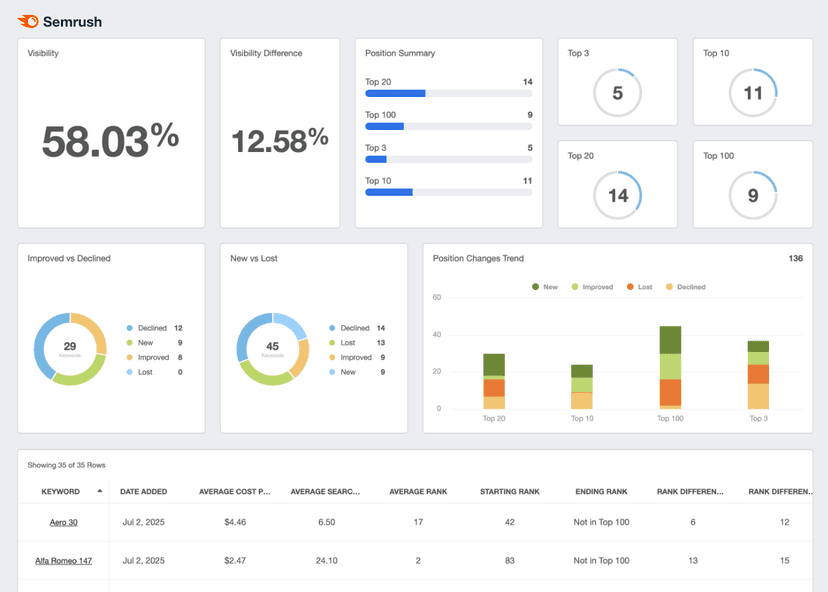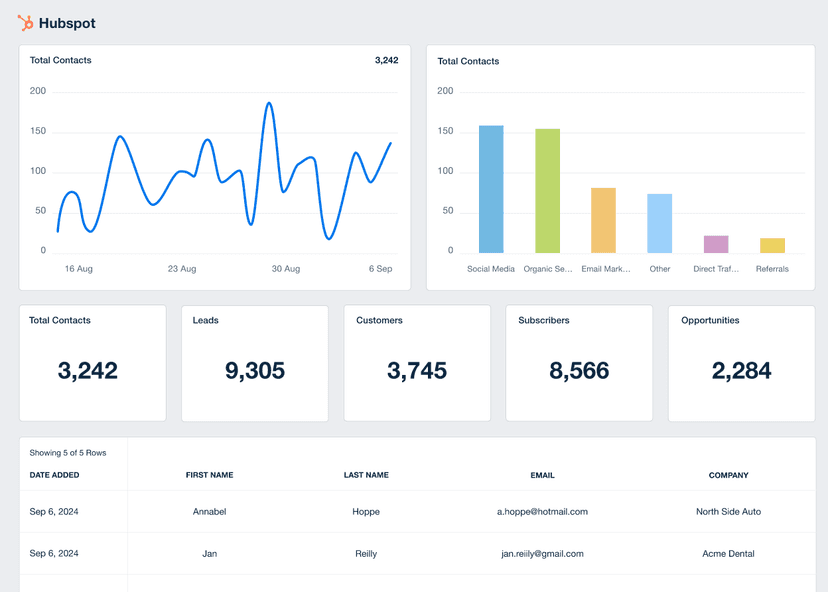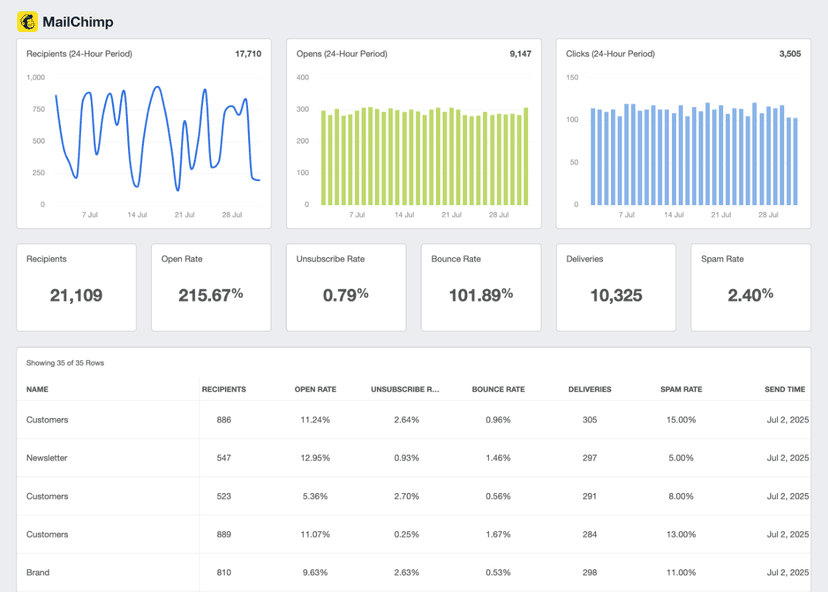New Users
Audience Growth
Track audience expansion over time.
Campaign Success
Assess new audience attraction by campaigns.
Market Penetration
Understand reach in targeted demographics.
ROI Showcase
Highlight agency value in client reports.
Why New Users Are Important
Tracking New Users helps to understand a campaign's ability to attract a fresh audience. This metric serves as a clear indicator of the initial impact of marketing efforts, providing insights into how well a brand resonates with potential customers. It's a fundamental measure for gauging the effectiveness of brand awareness strategies.
Focusing on New Users identifies trends and shifts in consumer behavior. By analyzing the influx of New Users arriving at a site, businesses better understand the appeal of their products or services to different segments. This user activity data is key for tailoring marketing strategies to ensure they are effectively reaching and engaging the right audience.
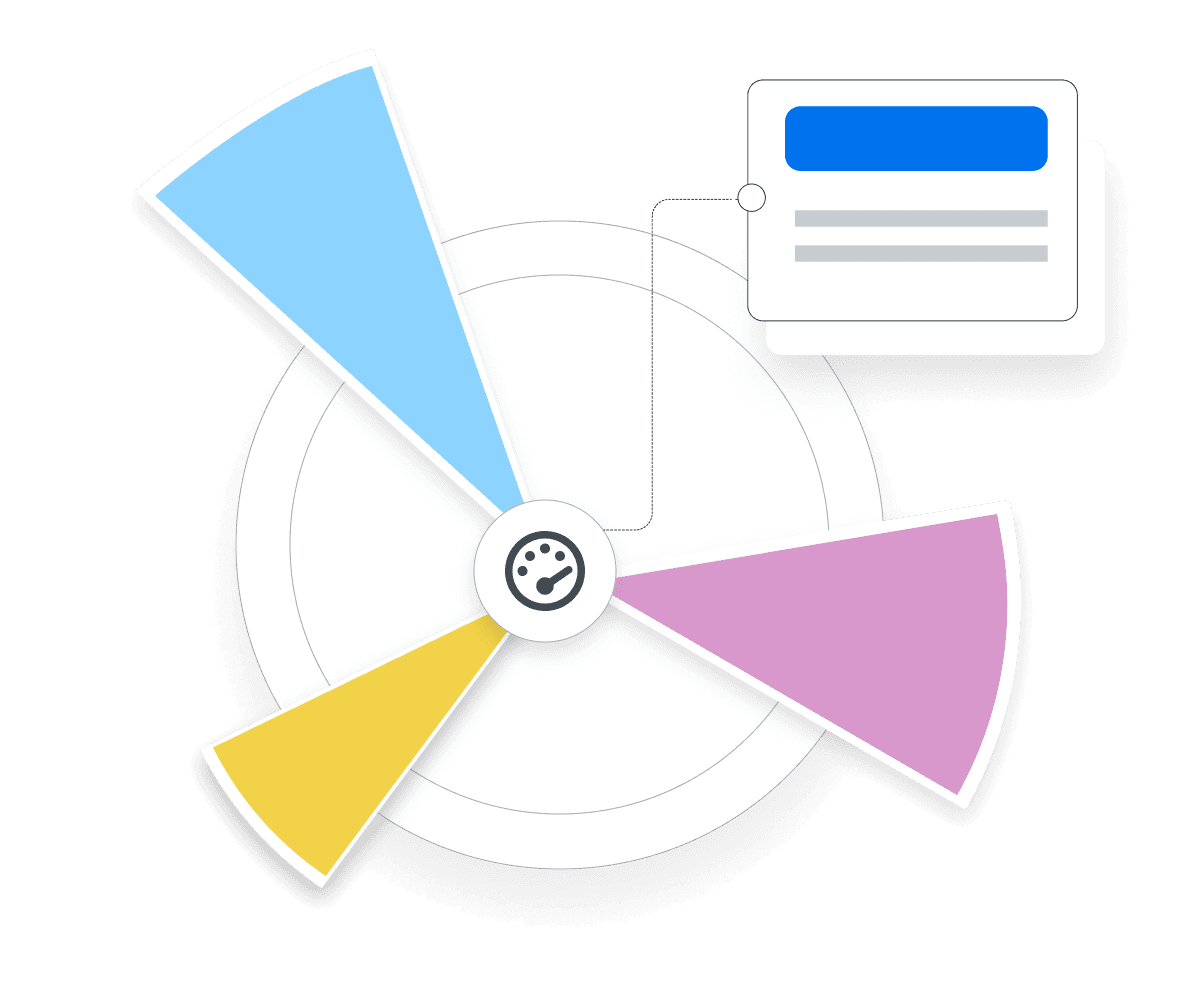
Stop Wasting Time on Manual Reports... Get Insights Faster With AgencyAnalytics
How New Users Relate To Other KPIs
New Users is a metric that interacts with other key performance indicators (KPIs), offering a comprehensive view of campaign effectiveness. Conversion Rate, for example, gains context from New Users; a high number of new visitors with low conversions often signals the need for a more engaging call to action or refined targeting strategies.
Similarly, the Bounce Rate in correlation with New Users indicates the relevancy and initial appeal of the content. A high bounce rate among New Users may suggest that the landing page or initial touchpoint isn't resonating or meeting user expectations.
New Users should also be evaluated alongside Repeat Visitors. This comparison sheds light on customer retention strategies and the ability of a campaign to attract users while engaging and retaining them. Understanding the relationship between a new user and a returning user guides more effective, data-driven decisions in future marketing strategies.
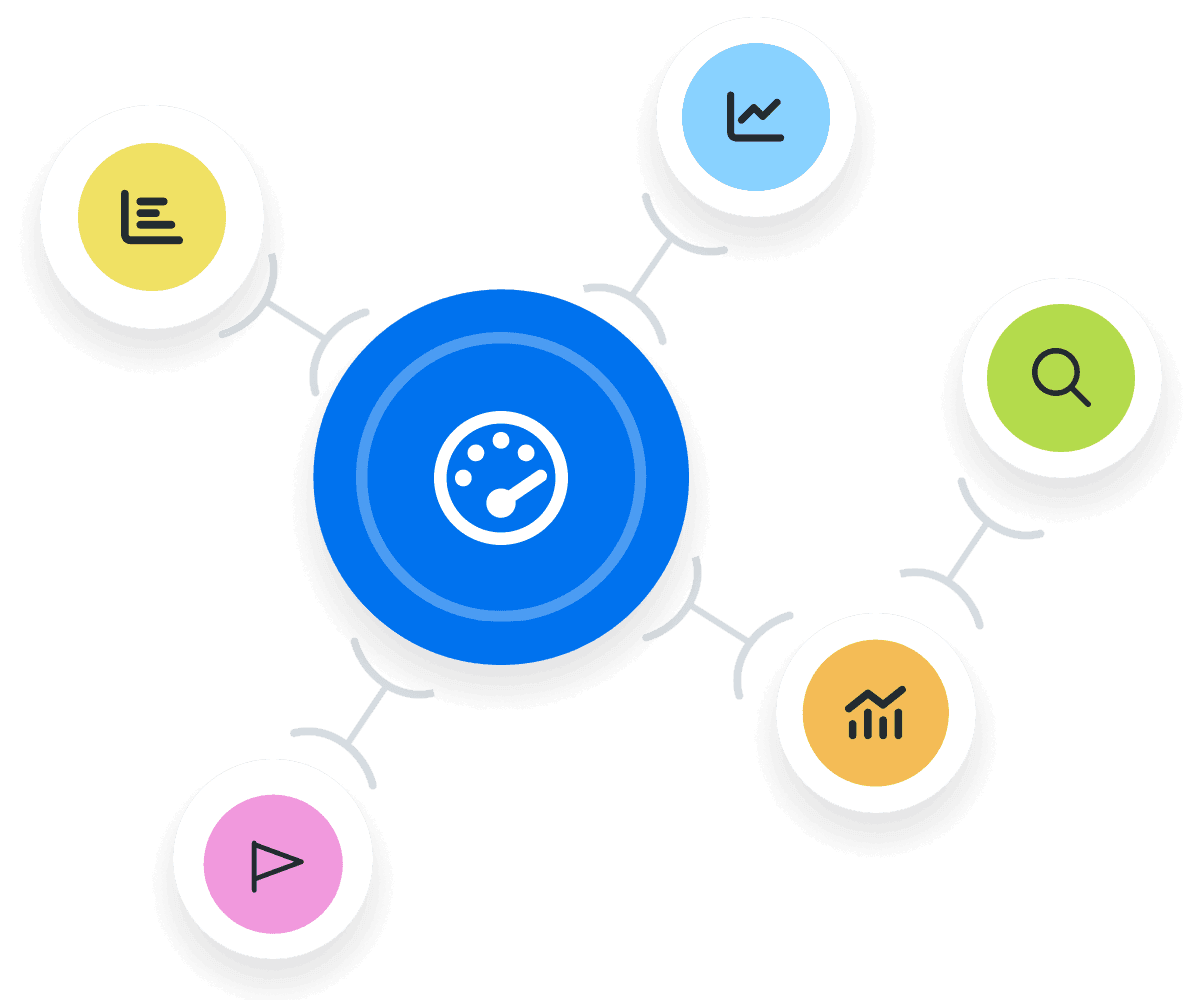
The Importance of New Users vs. Returning Users
New Users, as identified by Google Analytics, represent individuals accessing a site for the first time from a specific device and browser. This metric provides insights into how many fresh visitors a site is attracting in a specific time period, making it a vital component for measuring outreach success.
On the other hand, Returning Users in Google Analytics 4 (sometimes referred to as returning visitors) are those who have previously visited the site. They are tracked through the same browser used from their first visit, indicating continued interest and engagement. This distinction helps in understanding the total users and also the quality of engaged sessions. While New Users indicate the potential to expand the audience base, Returning Users highlight loyalty and sustained interest, key aspects of a thriving online presence.
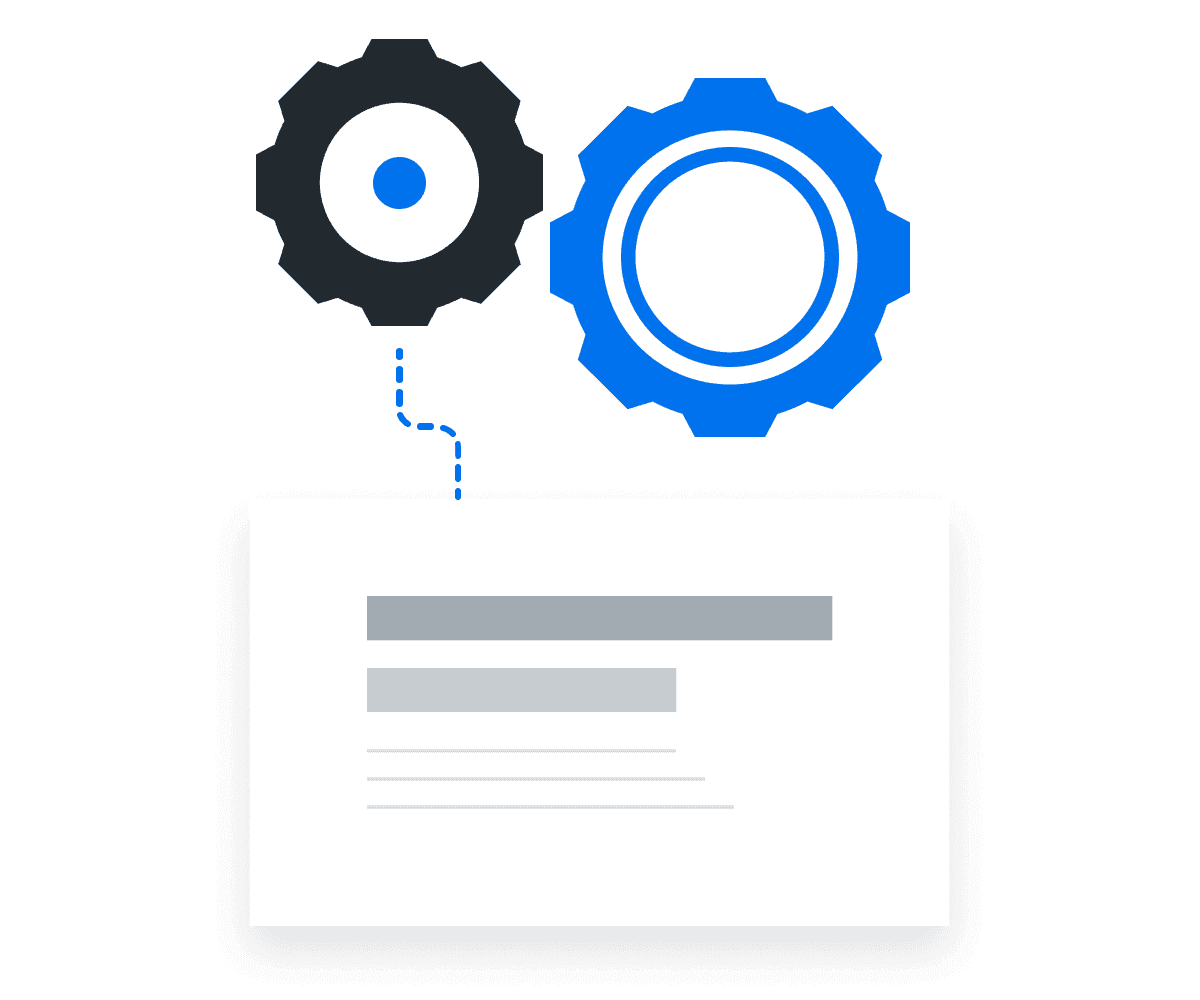
Tracking The Same User With Google Analytics
Google Analytics Users data is helpful for tracking established users across multiple websites. It makes it much easier to understand user engagement and refine marketing campaigns. The key lies in accurately identifying users who visit through different browsers or devices, ensuring that unique users are not just the same people returning on a different device.
Google Analytics goes deeper into active user insights, using a combination of the user ID and client ID to track the same users across different browsers and devices. This user dimension is essential to comprehend the full scope of user engagement.
Utilize this data to track if an individual, tagged as a unique user, engages in at least one session across various platforms. This approach ensures that the user metric reflects actual user behavior rather than just device or browser usage.
The depth of content really matters. Be sure to have topic and section headings that match user searches and contain keywords. You also want to make sure content flows correctly through a topic and is easy to consume. Users scan more than they read, but Google also needs enough meat in the content to make it relevant for the keywords and topic. Focus on the user first and search engines second.
How To Measure New and Active Users
To measure New and Active Users, track the total number of unique visitors who have not previously interacted with the website during a specified period. This data is typically collected through analytics tools like Google Analytics, which automatically differentiate new from returning users based on browser cookies or user IDs.
What Is a Good Number of New Users?
A good average number of New Users is indicative of effective marketing and audience reach. This figure should show steady growth or maintain a stable high level, reflecting successful engagement strategies.
The specific number is relative, depending on industry standards, campaign scale, and market size, but consistent growth is a positive sign.
What Is a Bad Number of New Users?
A low or declining average number of New Users signals a need for strategy reassessment. It may indicate issues in targeting, content relevance, or market saturation.
A bad average is often significantly below industry standards or historical data of similar campaigns, highlighting ineffective audience attraction or brand awareness efforts.
How To Set New Users Benchmarks and Goals
To align New Users with revenue goals, agencies back-calculate the required number to hit specific targets. Start by determining the Average Revenue Per User, then divide the revenue target by this value. This method offers a clear benchmark for the necessary New Users to achieve a set goal. Utilizing Google Analytics, track active users and their session count to ensure accuracy in identifying unique versus same users.
Granular Insights Into New Users
Digging deeper, analyze New Users by breaking down data by date range, user behavior, and acquisition channels. A Google Analytics cookie helps in tracking and categorizing users effectively. Assessing user acquisition costs against the value each New User brings provides agencies with granular insights.
This approach allows for a more nuanced understanding of New Users' impact on overall marketing performance. Depending on a client’s specific reporting needs, they may require more information beyond their website data and will want to know how their new and returning users impact their larger campaigns.
Why New Users Matter to Clients
Clients value New Users as a direct reflection of market reach and brand appeal. This metric indicates how many people are discovering their brand for the first time, providing insights into the effectiveness of awareness campaigns. It's a pulse check on how well their brand resonates with potential new customers and the efficiency of their marketing channels in capturing fresh interest.
Tracking New Users who arrive for a new session help clients understand the diversity and expansion of their market. For example, they are aware of the significance of a returning visitor, an engaged session, and the difference between user visits on different devices. These are all important user metrics that clients look for in a custom report.
New visitor data informs product development and customer service strategies, ensuring that they align with the needs and expectations of their evolving audience. For clients, New Users are the starting point in understanding and tapping into new market segments, crucial for sustained growth and innovation.

Why New Users Matter to Agencies
For agencies, New Users are a testament to their ability to generate buzz and attract attention in a crowded online industry. It's a measure of their skill in crafting compelling narratives and deploying effective outreach strategies. High numbers of New Users signify an agency’s competence in breaking through the noise and drawing in an audience.
Agencies also use New Users as a benchmark for refining their tactics. It helps in evaluating the initial impact of different marketing channels and creatives, guiding future campaign strategies. This metric allows agencies to demonstrate their value to clients, showcasing their expertise in maintaining and expanding a client's market presence.

Discover the Client Reporting Platform Trusted by Over {{customer-count}} Marketing Agencies
Best Practices When Analyzing and Reporting on New Users
A comprehensive analysis of New Users helps in understanding the nuances of audience engagement, guiding the fine-tuning of marketing approaches. Follow these best practices to maximize New User insights.
Ensure Data Accuracy
Regular audits of tracking methods and data sources are necessary to maintain reliability. Ensure that New Users have been segmented from Returning Users for accurate understanding.
Analyze New Users Over Time
Review New Users over different periods to spot trends and patterns. This temporal analysis reveals the ebb and flow of audience engagement, indicating the long-term effectiveness of marketing strategies.
Measure New Users by Campaign
Evaluate New Users across multiple campaigns to identify which strategies are most successful in attracting new visitors. This analysis informs future campaign planning and optimization.
Spot Trends and Anomalies
Interpret the trends and unusual spikes or drops in New Users. Understanding these variations provides insights into market shifts, campaign impacts, or external factors influencing audience behavior.
Visualize New Users Performance
Visual representation of New Users enhances comprehension and communication of data trends. Graphs and charts make it easier to convey complex information clearly and concisely.
Include Actionable Recommendations
Include actionable recommendations based on the New Users data. Suggest specific tactics for improvement or capitalization on the trends observed, guiding practical strategy adjustments.
Google Analytics 4 Dashboard Example
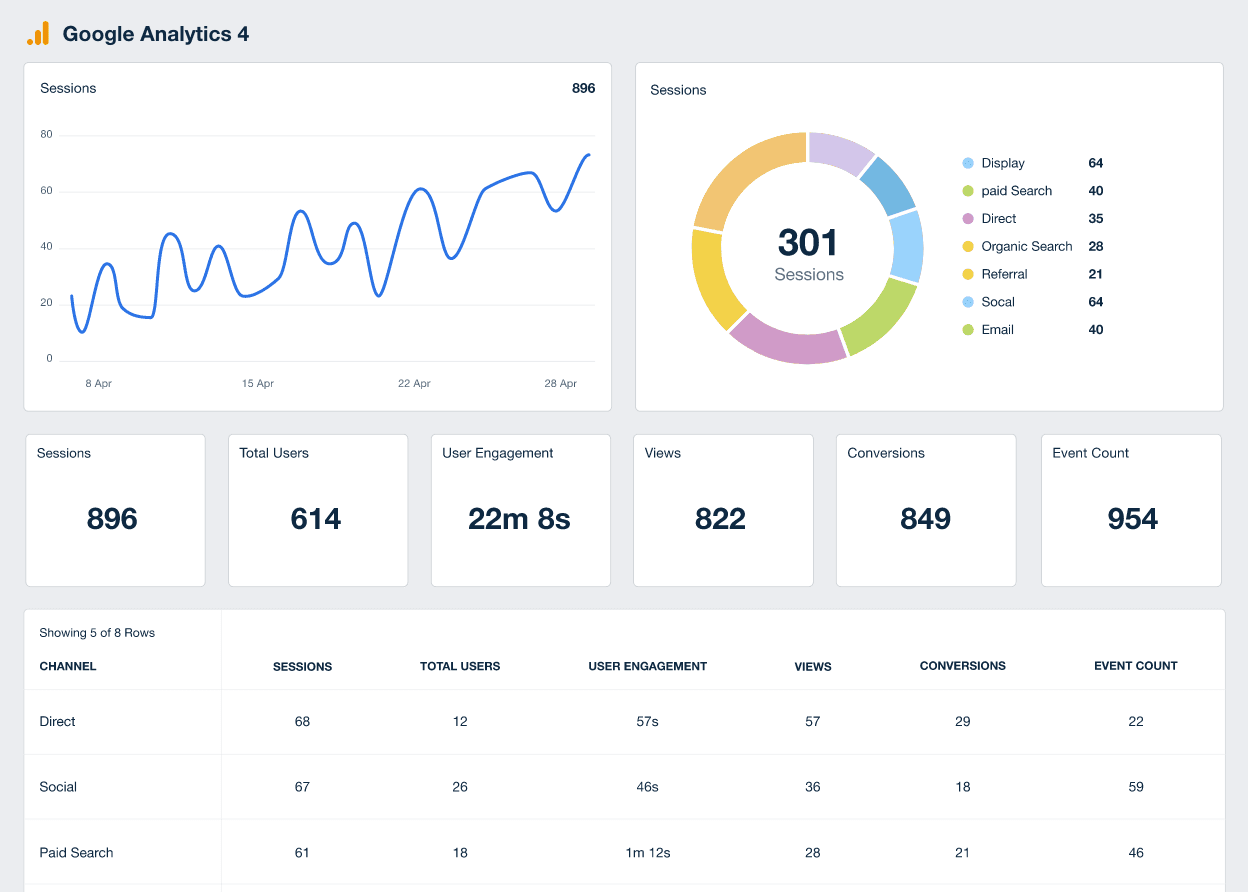
How To Improve New Users
When improving New Users, agencies typically aim to strategically attract and engage the right audience. These tips offer actionable steps to enhance the influx of new visitors, ensuring they align with the target demographic and contribute to overall business growth.
Leverage Organic Search
Focus on keyword research to understand what the target audience is searching for, and tailor a website's content to these terms. This increases visibility in search results, drawing in more New Users who are actively seeking what the client offers.
Encourage Word-of-Mouth
Implement a referral program that incentivizes current users to bring in new ones. Offering rewards for referrals is a powerful tool. It leverages existing customer networks and trusts, effectively turning the user base into a marketing resource.
Improve User Experience
Ensure the website is user-friendly, with intuitive navigation and fast load times. A positive user experience makes first-time visitors more likely to engage, use the client’s services, and return. Regularly analyze site performance for continuous improvement.
Related Blog Posts
See how 7,000+ marketing agencies help clients win
Free 14-day trial. No credit card required.


